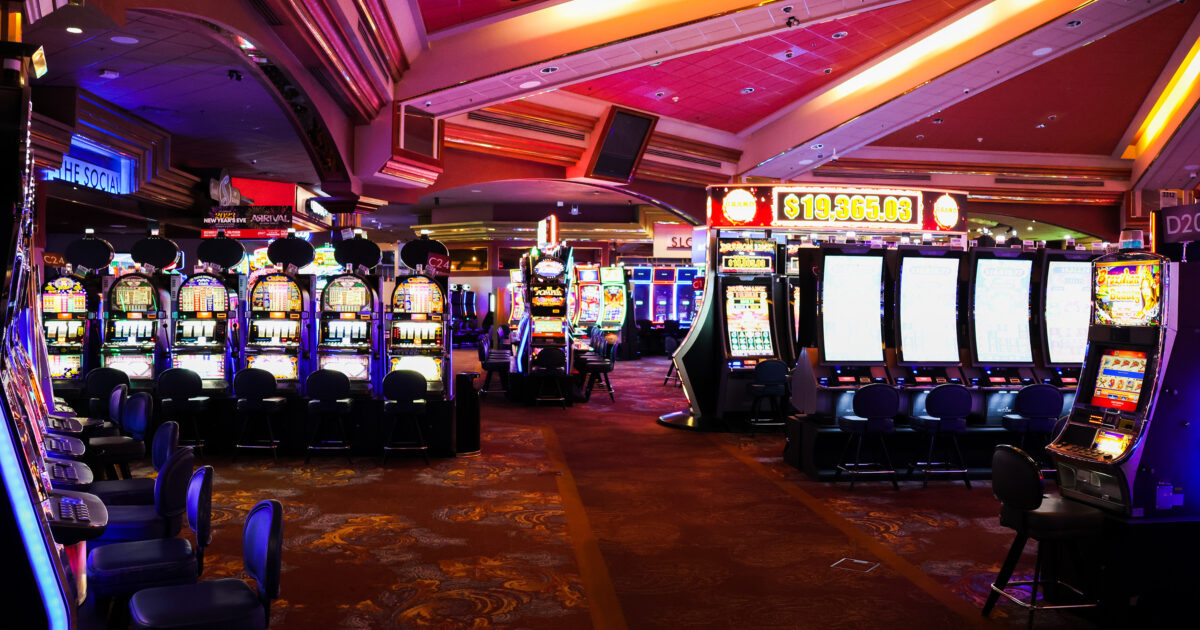
In the lively realm of casinos, in which the air pulses with excitement and the clattering of tokens fills the environment, the role of a game dealer is both crucial and fascinating. Daily, these experienced professionals step into a realm where luck and strategy converge, guiding players through the highs and lows of their selected casino titles. From card games like blackjack and texas hold ’em to the spinning wheels of roulette, dealers manage the action while making sure that each game operates seamlessly and honestly.
As the sun rises on another hectic day, a casino dealer gets ready to dive in this dynamic environment. Their responsibilities extend beyond just dealing cards or turning a roulette wheel; they are also entertainers, customer service representatives, and guardians of the rules. Each workday brings new obstacles and experiences, making every day distinct in the life of a dealer. This behind-the-scenes look will examine the daily routine of a casino game dealer, highlighting the skills and insights that make this profession both thrilling and rewarding.
The Role of a Gambling Table Dealer
A casino game croupier is at the heart of the gambling experience, orchestrating the progress of the game while making sure that players are engaged and entertained. Their primary responsibility is to oversee the table, which includes dealing cards, spinning the wheel, or managing the chips, based on the type of game being played. Croupiers must have a thorough understanding of the regulations and guidelines governing each game, while also upholding a friendly and approachable demeanor to improve the gambling atmosphere.
In addition to managing the gameplay, croupiers must also keep a close watch on the players and the environment around the table. This entails watching for any signs of cheating, ensuring that everyone is adhering to the guidelines, and addressing any conflicts that may arise among players. Effective communication skills are essential, as croupiers often provide explanations about the rules and mechanics and offer assistance to those who may be new to gambling games.
Furthermore, a dealer’s role extends past just the mechanical aspects of the game. They play a key part in crafting an immersive experience for the players. This necessitates establishing a rapport with patrons, being attentive to their wants, and often adding an element of fun into the play. It’s this mix of skill, alertness, and interpersonal relationship that makes the position of a casino table croupier both demanding and fulfilling in the vibrant world of casino games. KWIN
Daily Responsibilities and Challenges
One of the key responsibilities of a dealer in a casino is to supervise the multiple games available at their table, making sure a smooth and enjoyable experience for players. Dealers must be adept at distributing cards, handling chips, and maintaining the continuity of the game. This calls for a deep understanding of the regulations of each game, from blackjack to roulette, and the ability to address players’ questions while keeping the game moving. Attention to precision is crucial, as dealers must monitor bets, disburse winnings accurately, and monitor any cheating or discrepancies at the table.
In addition to managing the game per se, dealers encounter challenges such as managing difficult players. The casino environment can be stressful, particularly during intense games, and a dealer must remain composed and professional at all times. They need strong interpersonal skills to handle interactions with players who may be frustrated about losses or dissatisfied with the game’s speed. Handling these situations delicately is important in creating a friendly atmosphere on the casino floor.
Another major responsibility is upholding the integrity of the game. Dealers must be vigilant and attentive, watching for any signs of collusion or cheating among players. This involves not only a solid knowledge of the games but also an awareness of player psychology. They must also follow the casino’s regulations and procedures, participating in regular training sessions to keep updated on rules and protocols. Balancing these responsibilities while providing excellent customer service is what makes the role both challenging and rewarding for a dealer in a casino.
Qualities and Skills for Success
A successful casino game dealer must have superior communication skills. This includes not just the ability to clearly explain game rules and procedures to gamblers but also the capacity to connect with them in a approachable and professional manner. Building rapport with patrons can enhance the gaming experience and promote repeat visits to the casino. Effective communication enables dealers to manage tables seamlessly while ensuring that players feel appreciated.
Moreover, strong mathematical skills are essential for a dealer. Quick calculations are often required to keep track of bets, payouts, and game outcomes in the moment. A dealer’s ability to perform these calculations accurately and swiftly contributes to the overall efficiency of the game. This skill helps in maintaining the flow of play and in minimizing disputes or misunderstandings with players, which is crucial in a fast-paced casino environment.
Lastly, an ideal casino game dealer should exhibit integrity and professionalism at all times. Trust is a key component of the gaming experience, and players must feel confident that the games are conducted honestly and transparently. A dealer’s devotion to upholding high ethical standards fosters a positive atmosphere at the table and enhances the casino’s image. Being dependable in behavior ensures that dealers leave a memorable impression on guests, which can lead to a faithful customer base.
